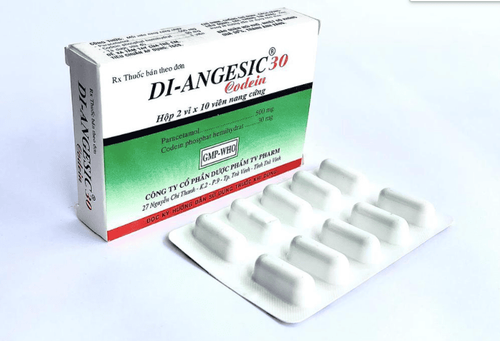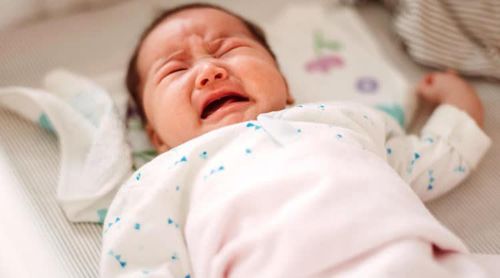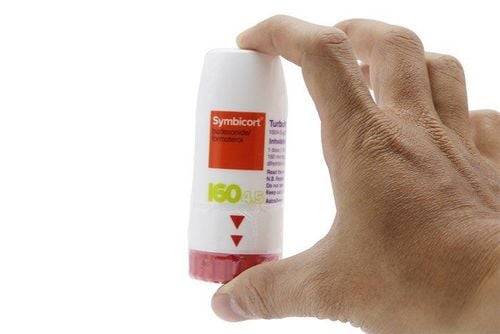This is an automatically translated article.
The article is professionally consulted by Master, Doctor Nguyen Hoang The Nhan - Department of Pediatrics - Neonatology - Vinmec Nha Trang International General Hospital.
Patients with acute respiratory failure will be very tired from lack of oxygen, especially children. Therefore, taking care of children with respiratory failure properly is what parents must pay attention to to help them quickly overcome the illness safely.
1. When a patient with acute respiratory failure has a fever
Monitoring body temperature by thermography to see if a child has a fever is the first step in caring for a child with acute respiratory failure. Specific directions for parents to handle at home in each case are as follows:If the child has a low fever (37.5°C to below 38.5°C): Let the child rest, expand and remove clothes. keep children airy, avoid covering blankets; Use a warm towel to apply to the forehead, armpit and groin area, stop applying if it makes the baby uncomfortable, fussy. For younger babies, it is necessary to increase feeding or drink more water and eat foods that are easily digested for older babies. If the child has a high fever (from 38.5°C or higher) or increases in temperature accompanied by irritability: The child needs to be given fever-reducing medicine, but the use of fever-reducing medicine in children must follow the doctor's prescription. Parents should actively cool the child with warm water if that does not make the child fussy or uncomfortable (check the appropriate water temperature by using the elbow).
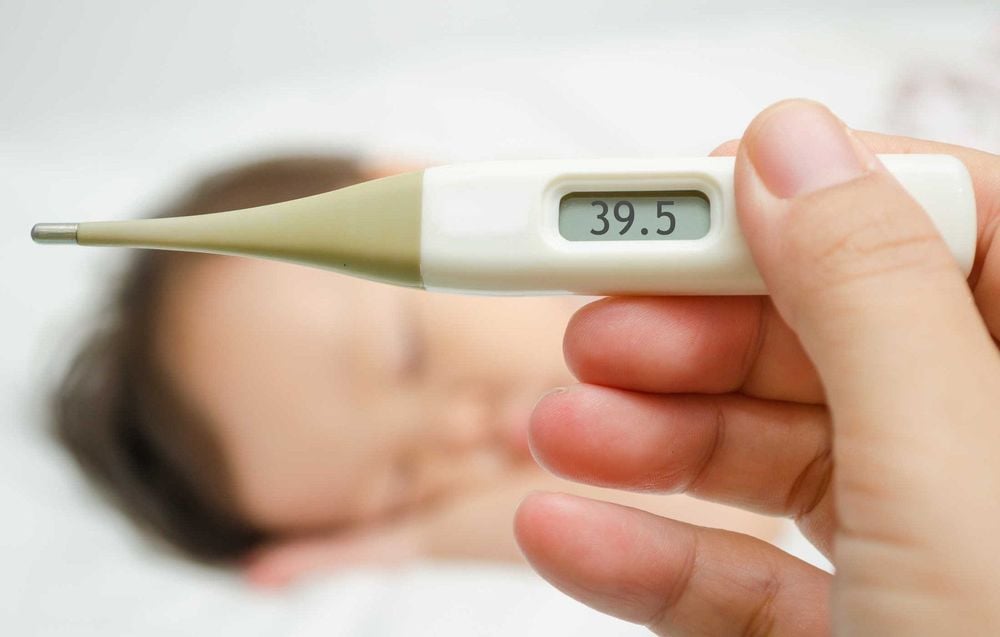
Cho trẻ uống thuốc hạ sốt nếu sốt cao từ 38,5 độ C trở lên
2. Airway care for children with acute respiratory failure
Airway ventilation is also an important step that parents need to take when caring for patients with acute respiratory failure. Things to do include:Cleaning of nose and mouth: When a child has a lot of runny or stuffy nose, blocked nose will make it difficult to eat or suck, as well as not be able to rest and have a good night's sleep. Parents can use 0.9% physiological saline drops into each nostril to dilute the nasal secretions, then use a nose-mouth aspirator to remove mucus. Finally, dry with a good tissue that does not break when in contact with water or a soft towel gently, limiting strong stimulation that causes the nose to become red and painful.
Help children expel sputum: Parents should note that there is no need to intervene and worry if the child shows little cough. The reason is because the cough reflex helps to expel secretions, expelling mucus and mucus naturally and effectively. Only pat your baby on the back before a meal or about 1 hour after eating to avoid causing vomiting. Gently pat the left and right sides, each area for about 3-5 minutes.
Treatment of a lot of cough: In case the child coughs too much, causing vomiting and insomnia, parents should give the child warm water to drink to thin the sputum and ease the cough. In addition, it is possible to relieve cough and sore throat with safe folk recipes such as: sugar cane, honey, lemon basil, white rose, warm diluted tea. Cough syrups with natural herbal extracts for children are also a suggestion that parents should consider choosing. (Note that you need to take your baby to the doctor immediately if the cough makes the baby wheeze, turns purple, or makes the parents worry a lot)
Intervention due to mechanical obstruction: Especially, if the child is stuck with a foreign object in the respiratory tract, If the airway is obstructed, the foreign body must be removed as soon as possible. Parents should learn how to give first aid to children in this emergency situation if the time to get to the hospital is too long.
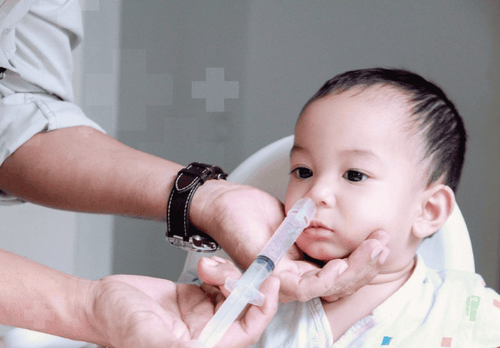
Thường xuyên về sinh mũi miệng cho trẻ bằng dụng cụ hút mũi - miệng hoặc sử dụng dung dịch nước muối sinh lý 0,9%
3. Nutrition for patients with acute respiratory failure
A nutritious diet can help children increase their resistance, thereby healing faster. Notes when developing a diet for patients with acute respiratory failure include:Nutrition according to needs: Mothers do not need to abstain or conversely force their children to suckle or eat too much. Both breastfed and weaning infants can continue to supplement their daily nutritional needs. Should divide meals: Eat several times a day with less food than a normal serving, but still have to ensure enough quality, soft, liquid, easy to digest, easy to swallow, green vegetables can be added. , fruit and fruit juice are notes that parents need to keep in mind when taking care of children with respiratory failure. Drink a lot of water for children over 6 months, increase breastfeeding for children under 6 months: Rapid breathing and fever will make patients with acute respiratory failure lose water. Therefore, children need to drink enough water both to make up for the loss of water, to have the effect of thinning phlegm and soothing a sore throat. Inserting a gastric tube: If the child is seriously ill and cannot eat by mouth, use this method to pump milk by the hour or drop into the stomach. At this time, the necessary energy source for the child must increase by 30-50% of the normal need to ensure that the child is healthy enough to cope with the disease. (Note that this procedure is only used at the hospital.)
4. Hygiene care
Combating superinfection and hospital-acquired infections is also a matter of special concern not only for parents, but also for the medical staff to put first when caring for children with respiratory failure in particular and patients with acute respiratory failure in general. In order to limit the spread of disease, it is necessary to regularly clean and clean the room, the medical examination and treatment process must ensure sterility, clean the instruments by autoclaving, especially when aspirating sputum through the endotracheal tube. . In addition, parents also need to pay attention to keeping the child's body hygiene and only using antibiotics according to the regimen recommended by the doctor.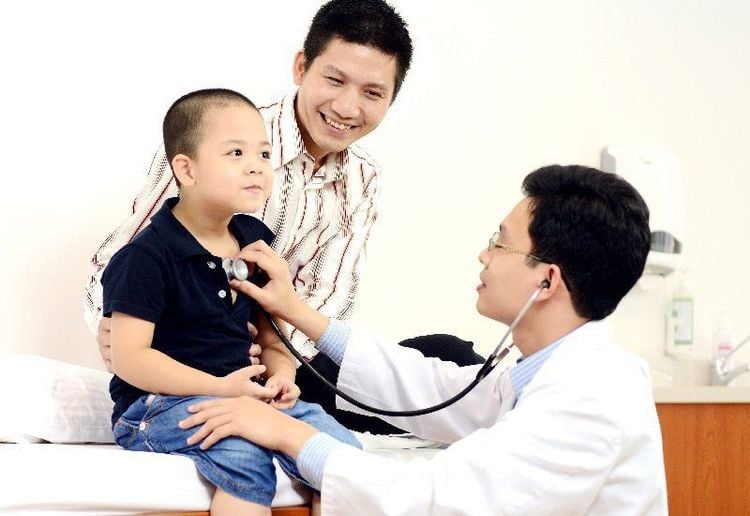
Trao đổi với bác sĩ cách chăm sóc trẻ suy hô hấp cấp
5. Some other notes
To prevent respiratory failure as well as prevent this disease from recurring or spreading, parents need to keep the following notes in mind:Breastfeed your baby as soon as possible to strengthen the immune system Compliance Immunization schedule to fully prevent diseases The child's nutrition must be scientific and balanced, helping to strengthen the resistance Let the child stay in a well-ventilated room, with sunlight and an appropriate temperature for the time. Details Hygiene for children and the surrounding environment, do not expose children to polluted dust, cigarette smoke, or cold air (Isolation) Limit contact between children and people with respiratory diseases, parents should Wash hands with antibacterial soap when caring for children In most cases, respiratory problems in children can be reduced if they are actively monitored and cared for patients with acute respiratory failure. right way. However, parents need to take their children to a medical facility to be diagnosed and treated by a doctor when they have a long-term high fever, accompanied by symptoms of acute respiratory failure.
Parents should choose to have their children examined at reputable medical facilities to accurately detect the condition and have a reasonable treatment plan to help the child recover quickly. Vinmec International General Hospital system has a team of experienced doctors, invested in modern equipment and a sterile room system, especially safe for children when examining and treating acute respiratory failure. .
Please dial HOTLINE for more information or register for an appointment HERE. Download MyVinmec app to make appointments faster and to manage your bookings easily.




